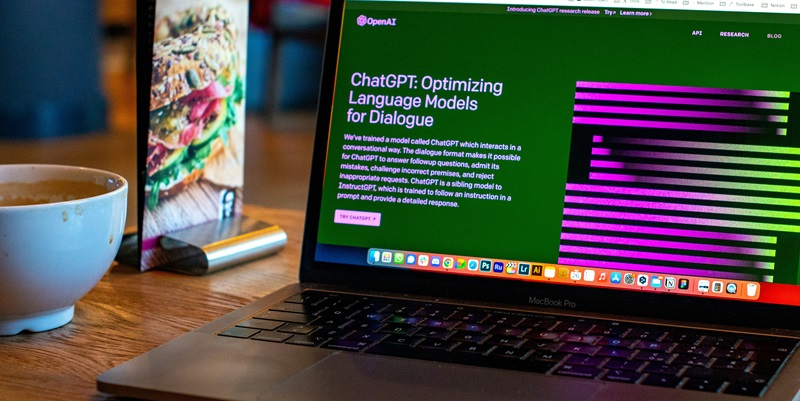The landscape of artificial intelligence has witnessed remarkable development in recent years, with OpenAI’s ChatGPT Store at the forefront of this innovation. However, amidst the technological strides, there has been a notable influx of AI girlfriend bots on the platform, despite OpenAI’s strict rules and policies against creating GPTs for romantic purposes. This article delves into the phenomenon, exploring the various AI chatbots available on the GPT store, examining OpenAI’s policies, and highlighting the challenges and ethical implications of virtual relationships.
Influx of AI girlfriend bots on OpenAI’s ChatGPT Store
OpenAI’s ChatGPT Store, designed to provide users with helpful and engaging AI chatbots, has become a hub for virtual relationships. Users can now find a range of AI chatbots with names like “Korean Girlfriend,” “Virtual Sweetheart,” and “Your AI girlfriend, Tsu.” This surge in AI girlfriend bots indicates a growing interest in virtual companionship and represents a significant area of exploration for AI developers.
Strict rules and policies against creating GPTs for romantic purposes
Despite the popularity and demand for AI girlfriend bots, OpenAI explicitly prohibits the creation of GPTs with the intention of fostering romantic relationships or engaging in regulated activities. These rules are in place to ensure responsible and ethical use of the technology, promoting the development of AI models that prioritize utility and general intelligence rather than catering solely to romantic interests.
OpenAI’s prohibition on fostering romantic relationships and regulated activities
OpenAI’s policies are designed to create boundaries and prevent potential misuse of AI technology. By disallowing the development of GPTs for romantic purposes, OpenAI aims to maintain focus on building AI models that benefit a wide range of users and avoid encouraging potentially harmful or exploitative behavior. These policies apply to both creators and users of the AI chatbots.
Implementation of policies through automatic enforcement and retrospective review
OpenAI not only sets clear policies but also implements them effectively. The company utilizes automatic enforcement mechanisms to identify and filter out GPTs designed for romantic purposes. Additionally, OpenAI conducts retroactive reviews to ensure that existing AI chatbots on the platform adhere to the policies, thereby maintaining a safe and valuable ecosystem for users.
Historical examples of virtual assistants being bombarded with romantic or sexual questions
The phenomenon of AI girlfriend bots follows a pattern seen previously with virtual assistants like Siri and Google Assistant. These AI systems have often been bombarded with romantic or sexual inquiries, leading to the collection of data that can be used to train AI models. The surge in AI girlfriend bots indicates the increasing demand for virtual relationships and companionship.
Growing interest in virtual relationships and companionship
The popularity of AI girlfriend bots highlights a growing interest in virtual relationships and companionship. Users are increasingly seeking out AI chatbot apps related to friends, girlfriends, or companions. The convenience, personalization, and 24/7 availability of virtual relationships offer a unique appeal to those longing for emotional connections in the digital era.
Mixed reactions to the concept of virtual relationships
The concept of virtual relationships and companionship can be seen as fascinating by some who appreciate the accessibility and absence of judgment. However, others find it unsettling or even creepy, raising concerns about the potential for emotional manipulation and the blurring of lines between human and AI interactions. These mixed reactions emphasize the need for society to engage in critical discussions regarding the ethical implications of forming emotional connections with virtual beings.
Implications of forming emotional connections with virtual beings
As AI technology continues to advance, questions arise about the boundaries between humans and AI and the implications of forming emotional connections with virtual beings. While virtual relationships can provide companionship and support, it is important to consider the potential consequences for human interaction and emotional well-being. Striking the right balance between real and virtual relationships is crucial to ensure healthy social dynamics and psychological fulfillment.
Challenges OpenAI faces in navigating this evolving landscape
As the demand for AI girlfriend bots and similar virtual companionship options continues to grow, OpenAI faces unique challenges in navigating this evolving landscape. The company must consistently review and update its policies to address emerging concerns and stay ahead of potential misuse. Balancing user demand with ethical considerations requires OpenAI to carefully examine the complex interplay between technology, social dynamics, and responsible AI development.
Ensuring responsible and ethical use of technology
OpenAI is committed to ensuring the responsible and ethical use of AI technology. By enforcing strict policies, the company aims to drive the development of AI models that prioritize societal benefit while minimizing potential harm. OpenAI’s proactive approach to policy enforcement reflects its dedication to creating a safe and valuable ecosystem for users and promoting ethical AI practices.
Importance of continuous scrutiny and regulation
The trend of AI girlfriend bots highlights the need for continuous scrutiny and regulation to address potential ethical concerns. As technology evolves, society must engage in ongoing discussions to determine appropriate boundaries. Collaboration between AI developers, policymakers, and ethicists is essential to set standards, assess the impact of virtual relationships, and develop guidelines to protect users.
The influx of AI girlfriend bots on OpenAI’s ChatGPT Store showcases the growing interest in virtual relationships and companionship. While reflecting the desire for emotional connections in a digital age, it also raises important ethical questions regarding responsible AI development and the implications of forming emotional bonds with virtual beings. OpenAI faces the challenge of navigating this evolving landscape, ensuring policies are effective while balancing user demand and ethical considerations. Continuous scrutiny and regulation are essential to address ethical concerns throughout the development and use of AI technology.

